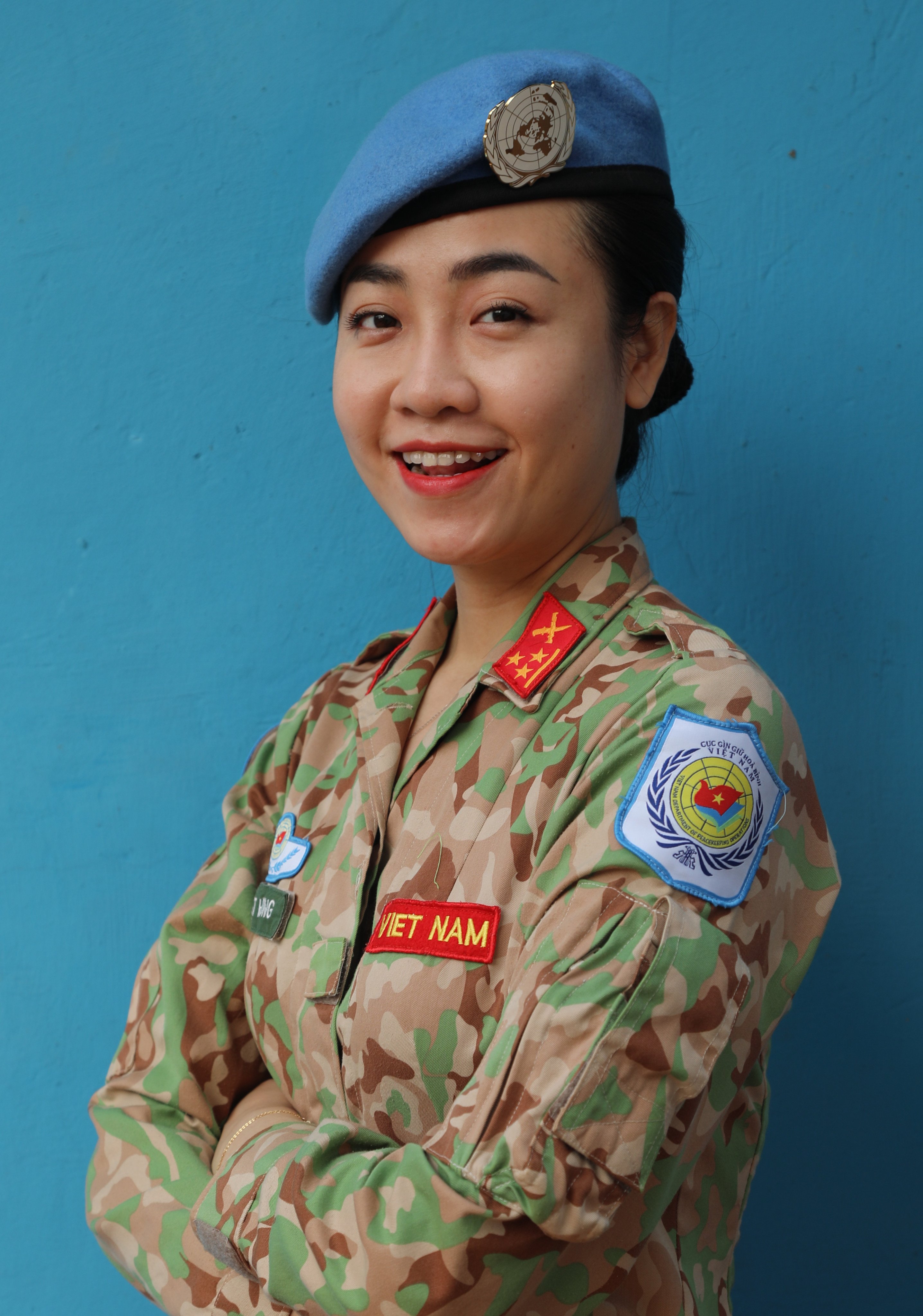
- In 2000, not a single woman from the Asia-Pacific countries served in UN peacekeeping forces. Today, women from across the region pursue careers thousands of kilometres from home and family
From her outpost in the capital, Bangui, she counted off 379 days on a paper calendar that she spent away from her loved ones, before returning to Vietnam last December.
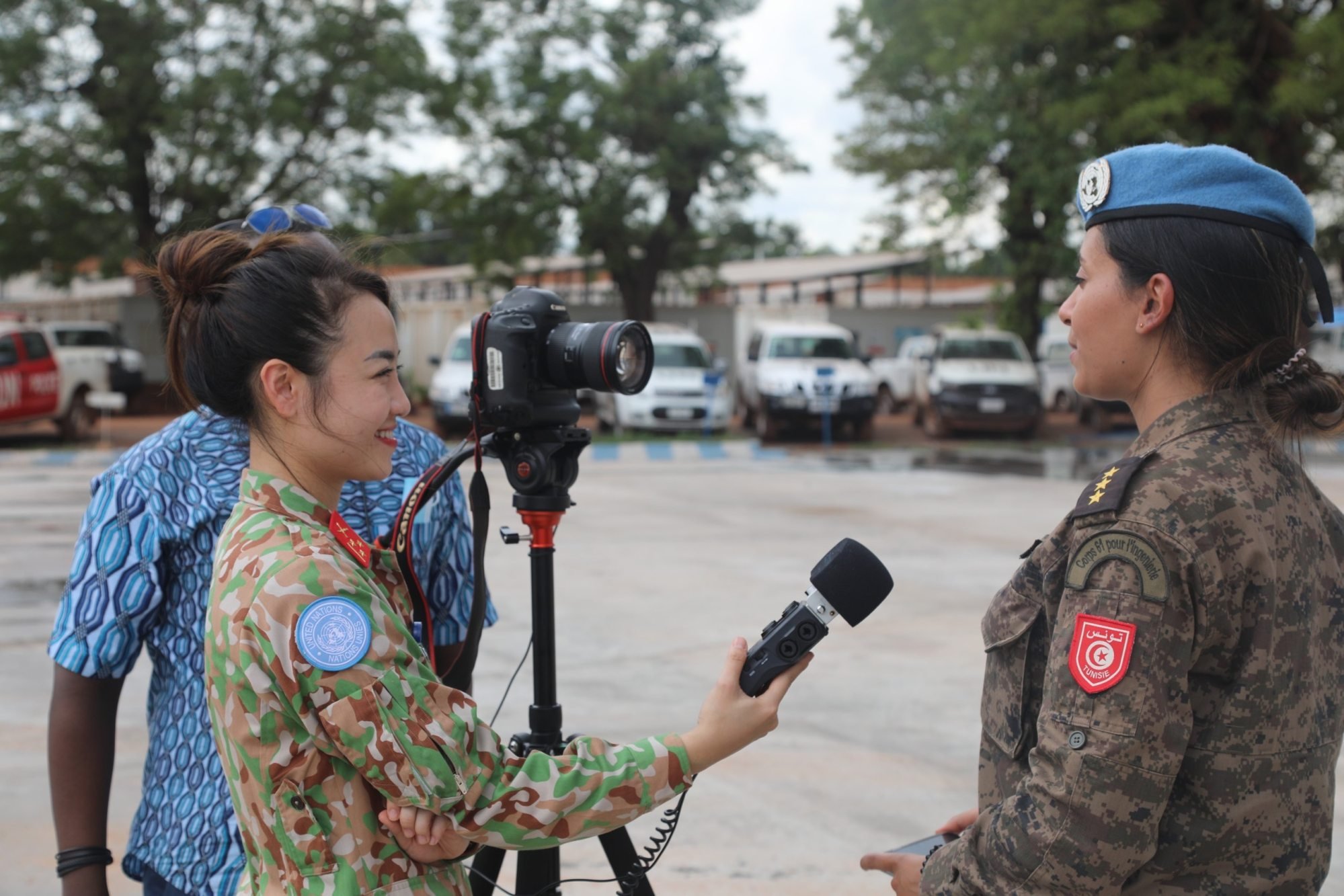
Living in the Central African Republic felt like being in “an old film”, she says. The volatile security situation, together with extreme heat – temperatures can rise as high as 45 degrees Celsius (113 degrees Fahrenheit) – a lack of water and electricity and an alien culture made it all the more challenging.
Often homesick, she would go days without being able to speak to her family because of the poor internet connections.
Towards the end of her deployment, Huong says, her body became so numb and limp that she could hear people talking around her but could not utter a word herself. It turned out she had contracted malaria and she spent three days in hospital.
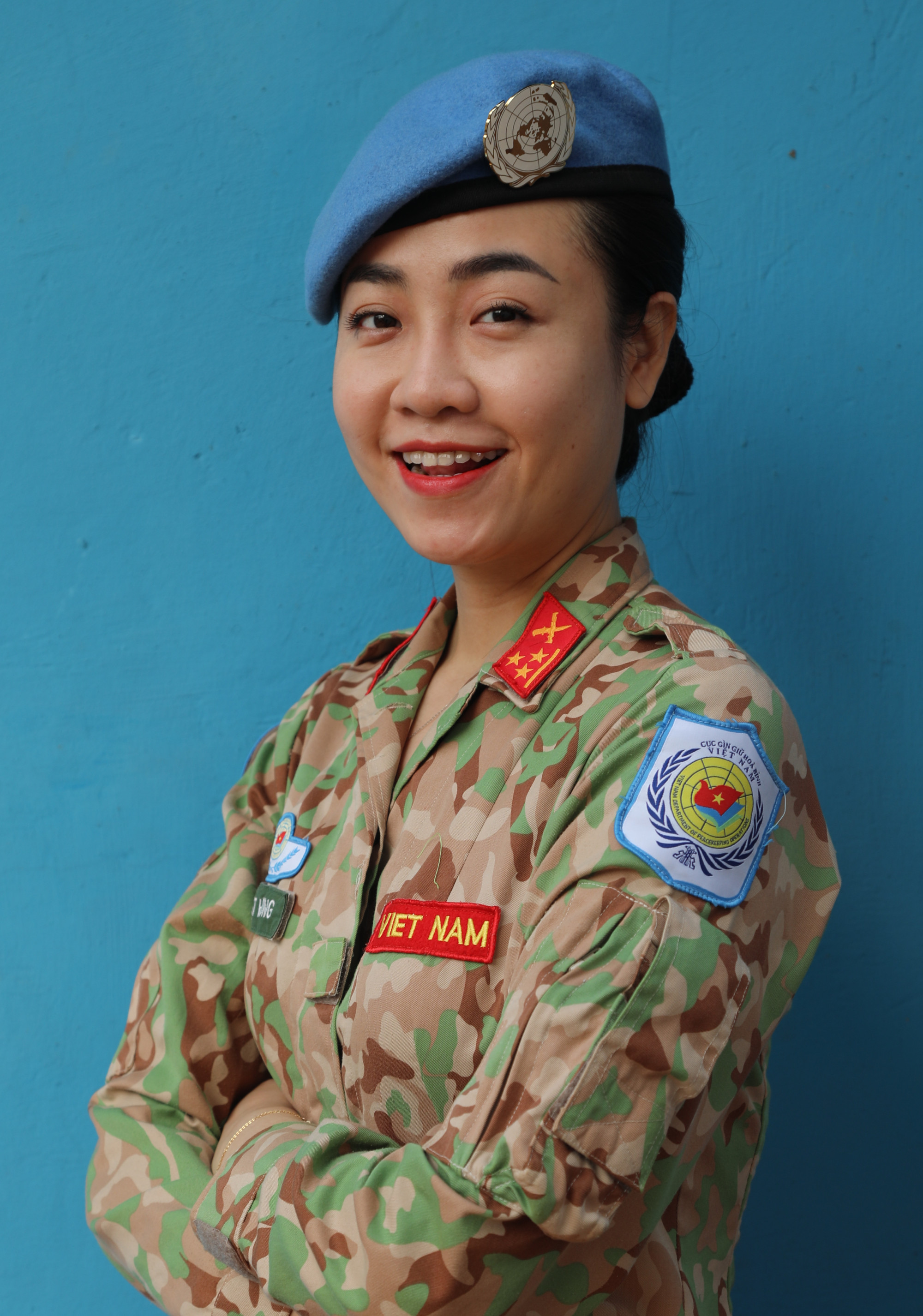
Looking back, she says it was all worth it. Currently based in the Vietnamese capital, Hanoi, Huong has already set her sights on another foreign mission: she would like to apply to the engineering contingent. Ideally, though, she wants to get married first.
“In Vietnam, we should get married at like 28 or 30 years old,” she says, admitting that she has not had much time for dating. “If I get lucky, I will get married this year, but if the mission comes earlier I will take it.”
Indira Putri, a 29-year-old Indonesian second lieutenant, from East Kalimantan in Borneo, who has been in the Central African Republic since September last year, also had to learn how to deal with her family’s expectations.
“I was not persuaded to give up my dream, but they kept asking why I was interested,” she says. “They were quite shocked in the beginning.”

Although it came as a surprise to her family, Putri had harboured a dream of becoming an officer since she was a child. “I often saw a female police officer who helped in my school, directing drivers and managing traffic, and I wanted to be like her,” she says.
“I am different from my siblings, who prefer to stay at home and live in their comfort zones,” she says.
When Putri landed in the Central African Republic, the culture shock was instant. The dirt roads, the crowds, the stares – it was unlike anything she had experienced.
Based in Bangui, she has been in charge of managing the UN camp and handling other operational matters. As she has grown familiar with the place, her relatives – more than 10,000km (6,200 miles) away – have also gained a better understanding of her job.
“In the beginning, they were worried and they kept contacting me all the time,” she says, “but I asked them not to worry too much.”
People in the village said that as a girl I should not join the military because I should not stay far from home or go to other places. They believed that [kind of] work was only for menSen Sophirum
This came after the December launch of Asean’s Regional Plan of Action on Women, Peace and Security, which provided a regional framework focused on promoting women’s representation and participation.
Major Sen Sophirum, 35, always had her family’s support, but that does not mean she was immune to social pressure.

Originally from a small village in Kampong Thom province, in central Cambodia, Sen Sophirum has had her fair share of negative comments over her career choice.
Sen Sophirum blames such perceptions on the small numbers of women joining the military and, being only 19 at the time, she almost gave up. “I was doubtful and thought that maybe I did not want to join,” she says. “My mum and close relatives gave me the strength and motivated me.”
While on leave back home in February, Sen Sophirum got married to another soldier.
“I was independent and now I have someone,” she says. “It’s not pressure. But it feels that my life is a bit different – I need some time to get used to it […] I plan to have a kid, so maybe I won’t be able to join a peacekeeping mission for several years.
“I don’t want to miss opportunities, but perhaps I will support peacekeeping from my home country.”

“Many people carry weapons with them,” she says, “so I work harder with higher alertness in the dangerous areas.”
“It’s a bit hard to be apart, but it’s military life,” she shrugs. “He understands.”
Lieutenant Colonel Chhorm Borey, 38, originally from Cambodia’s Takeo province, knows only too well how difficult it is to balance family and military life. Her daughter was one year and four months old when she left for a mission in South Sudan.
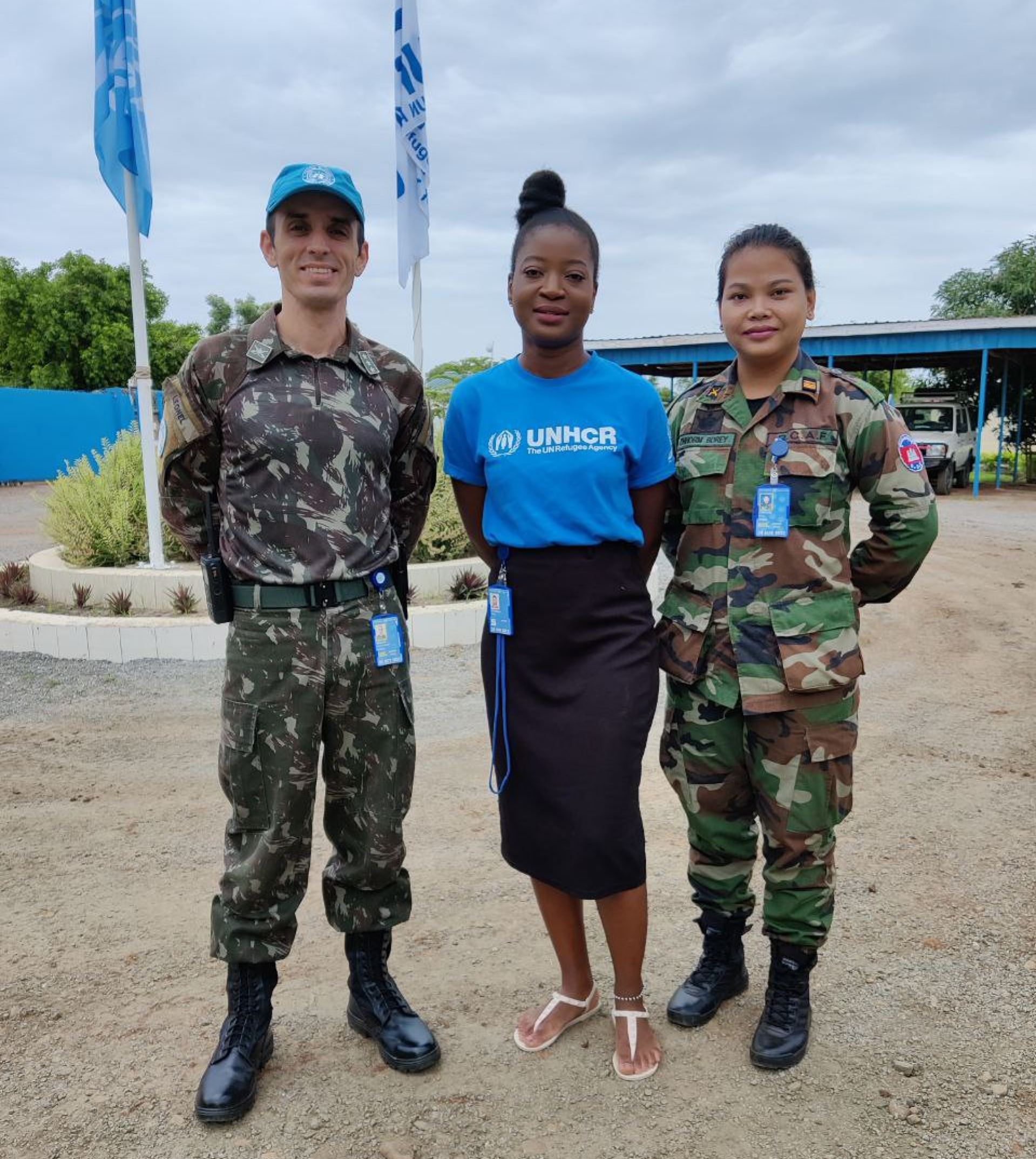
She says the first few months away from her child, who was being looked after by her grandmother, were the hardest. “We spoke every day [via video call] so she would not forget my face,” she says.
Before joining the military in 2011, Chhorm Borey was a Khmer literature teacher at a high school for four years. She says she was drawn by the job prospects, the salary and the opportunity to learn foreign languages.
“I thought this was man’s work,” she says, “but then I believed I could do it.”
Although she had her parents’ support from the beginning, Chhorm Borey says her mother initially voiced concerns because she was single at the time. In 2017, she got married to a Cambodian peacekeeper she’d met in South Sudan.
However, marriage has not been without its challenges. Chhorm Borey – now home in Phnom Penh having completed four deployments abroad – says she has faced “some pressure” when it comes to performing family duties.
“We have been to the same countries but at different times,” she says. “Although we had some difficulties, we were able to resolve them. As peacekeepers, we have a mutual understanding.”
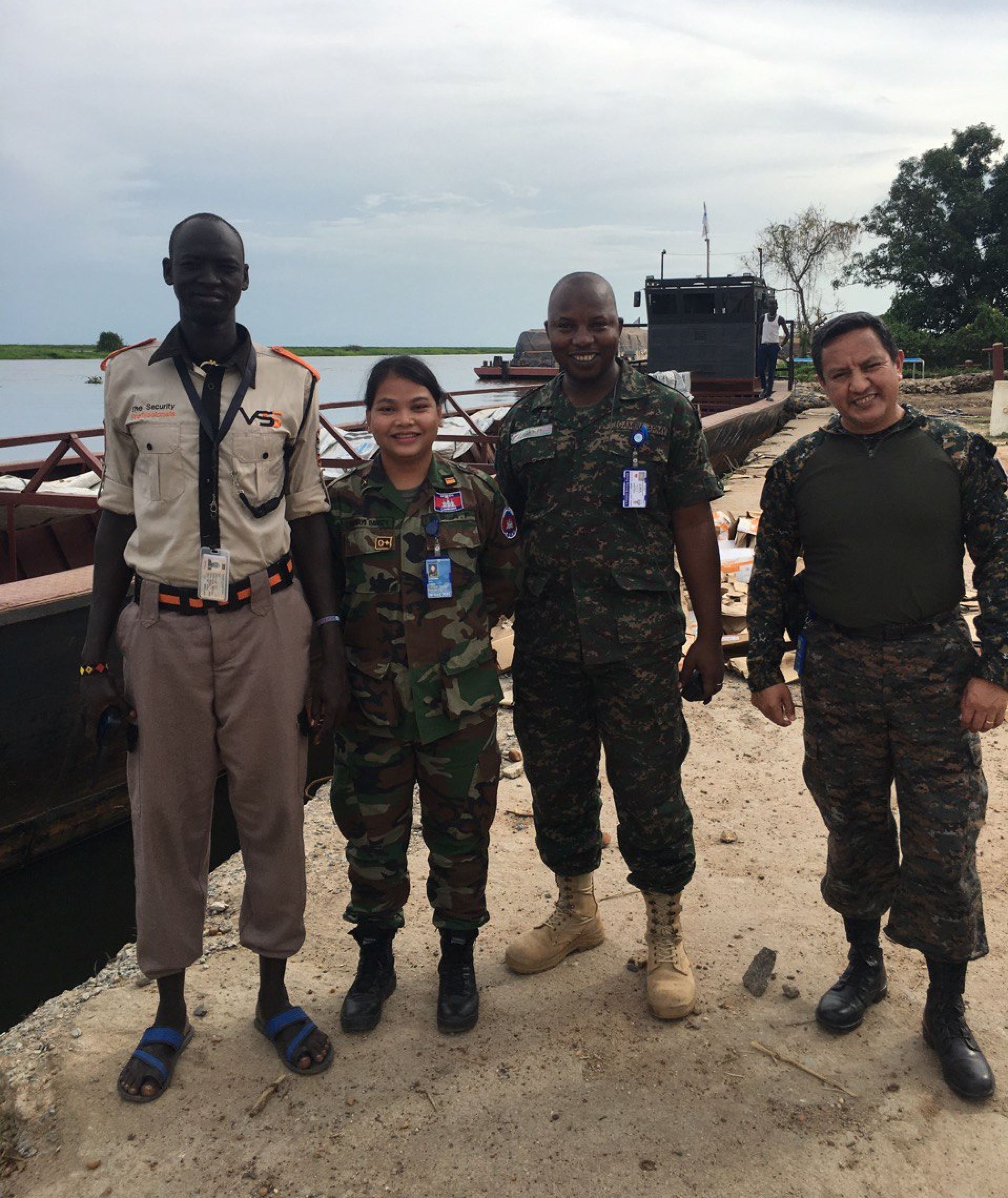
“Some of the men in my company expressed the concern that we [women] could be a burden […] especially when deployed in hot zones,” she says. “I was not angry. I know that women can do any kind of job. We don’t just belong in the kitchen, we receive the same training.”
Sen Sophirum says that she had been on the receiving end of demeaning comments earlier in her career, but “things started improving on my second mission in South Sudan, perhaps because they received more education about gender [equality]”. However, she says it is still harder for women to rise in the military.
Sen Sophirum, who intends to join more foreign missions, says greater support for women to pursue their professional ambitions is needed at home.
“There should be some change,” she says. “[Men] should be more involved in the housework and give more time for the women to go out to work and achieve their goals.”
She says there also needs to be a shift in mentality among women themselves: “In Cambodia, when they get married they have to stay looking after their husband and children, sometimes they don’t want to go out to work and quit [their jobs]. There is this mentality issue and cultural obstacle.”

First Lieutenant Fitri Rahmasari, 29, from Jakarta, Indonesia, will finish her mission as a liaison officer in the Central African Republic this month. She is one of 25 women in the nearly 400-strong Indonesian contingent of police and military peacekeepers.
When Rahmasari is not out patrolling and talking with locals, she works from an office made of industrial containers, with a floor covered in blue plastic, where schedules and contingency plans are drafted.
Despite hygiene challenges because of the limited water supply, she says her workload is the same as that of her male colleagues and she brushes off any gender prescriptive jokes.
“Our workload is balanced,” she says. “If the men are doing security, we are also assigned [to do that], and if the women are cooking, the men are cooking.” In fact, Rahmasari says that being a woman has made her job easier.
“We feel that local people accept women better than men,” she says. “They don’t see us as a threat and they also don’t discriminate against us. Being a woman is definitely an advantage as a peacekeeper.”

According to Rahmasari, women peacekeepers can play a major role in tackling sensitive issues such as sexual abuse, which is “very much intertwined with the economic and political issues of the place. Therefore I feel the need for more training to better understand the population and their needs”.
“We cannot just say, ‘If you have any cases, you can report it to us.’ We need to have a conversation with them … We need to be better at communicating with them in their language.”

Despite improvements in reporting and support mechanisms, the UN has been criticised for not acting with sufficient speed or sensitivity when such cases are uncovered, while the accused’s home countries rarely prosecute alleged perpetrators.
Other women peacekeepers note there are strict UN guidelines in place, but agree that further training is needed. Chhorm Borey, who says she has never encountered such cases herself, argues that empowering local women and enhancing their understanding of these issues are crucial steps to eliminating the problem.
“We tried to disseminate and [organise] outreach activities to educate local people and help them understand domestic violence, physical violence and sexual assault,” she says, adding that the UN has made it clear that peacekeepers are forbidden from paying for sex, whether with cash or goods.
Major Nguyen Van Thu, 36, from Vietnam, has welcomed the growing number of female colleagues in the UN peacekeeping forces. In his opinion, women play an essential role in handling cases of sexual abuse and harassment, as most of the victims are women and children.
Thu agrees that women tend to be better received by locals and, regardless of the issue, “if a woman takes part in negotiations she is more likely to succeed”.
Being a woman peacekeeper is a positive message in itself. It sends the message that women are safer and empowers them. It shows that women are able to do the same things men can doFitri Rahmasari
Chan Soporoath, currently based in Phnom Penh, says gender equality is “essential for peace and security. I try to act as a role model … motivating and encouraging my female juniors to have more confidence”.
At the same time, he says, he has “tried to set an example for other men that we should promote gender equality”.
Sarah Knibbs, regional director for UN Women in Asia and the Pacific, says that the region can become a driving force for female representation within the peacekeeping forces, but training and opportunities, including programmes such as the Female Military Officers’ Course, need more financial backing from member states.
She adds: “More efforts are required to advocate for meaningful roles for women peacekeepers [and] for women to be in leadership positions.”
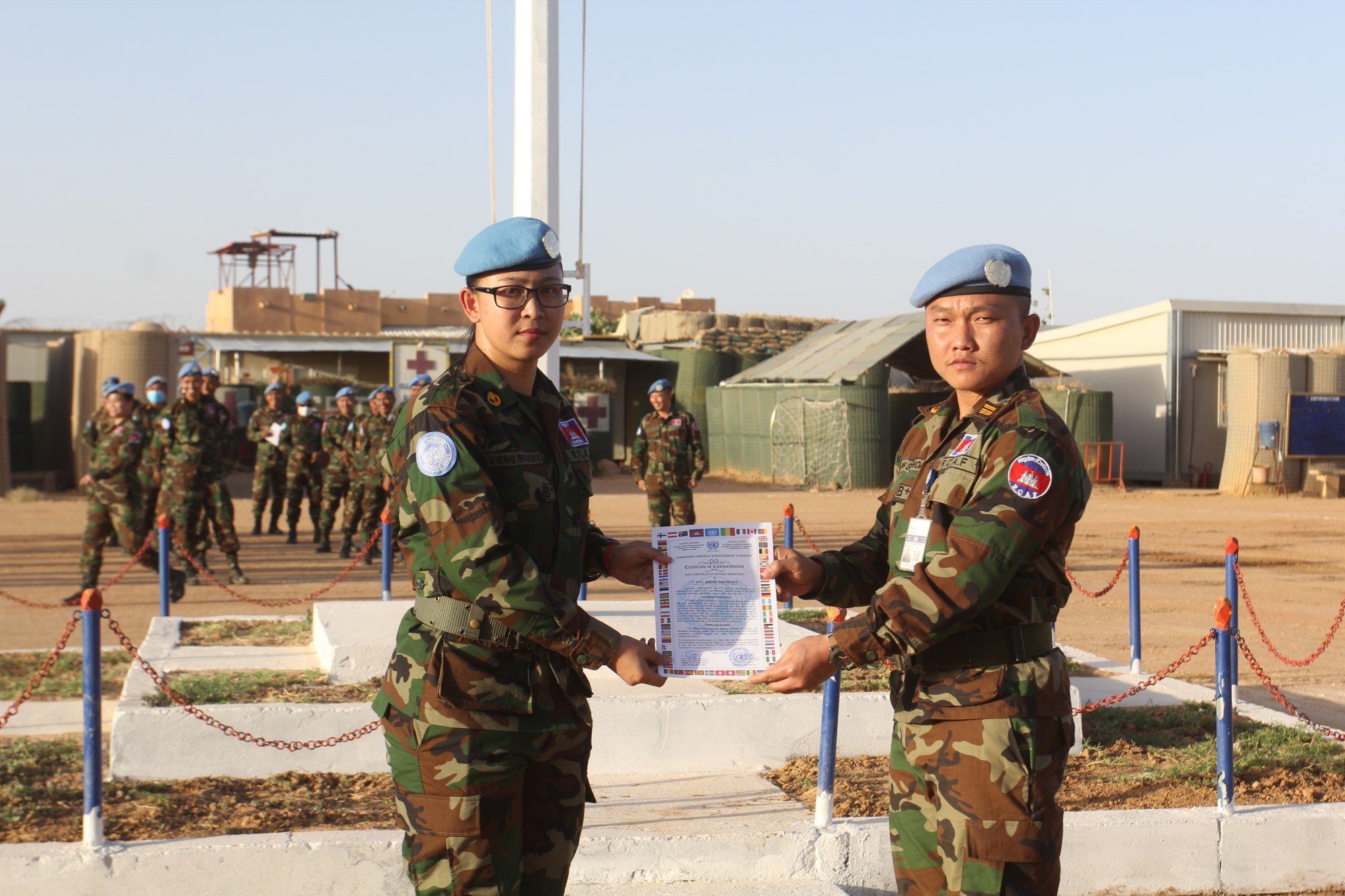
Soumita Basu, an associate professor at the South Asian University’s department of international relations, in New Delhi, agrees that the missions should be “more representative”, noting that “the onus lies with troop-contributing countries to work towards gender parity in their national forces”.
Critics have, however, warned against stereotyping women peacekeepers. Nina Wilén, director of the Africa Programme at Belgium-based think tank the Egmont Institute, says: “There is definitely a risk of increasing gender stereotypes when the reasoning behind demands to increase the number of women peacekeepers comes from expectations about women behaving in ways that are considered typically feminine, softer, gentler, more peaceful.”
She notes this could lead to “harmful consequences” for both the status and legitimacy of women peacekeepers. Wilén says all peacekeepers, regardless of gender, should be capable of doing the tasks to which they are assigned.
“No extra expectation, which often transforms into an extra burden, should be put on female peacekeepers to add something particularly feminine.”
Chhorm Borey says the new generations’ prospects are brighter. But she urges the Cambodian government to provide more opportunities and encourage women like her who are married and have families to go on overseas missions.

“I love this job, I have experience in real war, and also experience in Cambodia,” she says, having drawn strength from hard-working local women she met in countries like South Sudan, who face poor sanitary conditions, lack medical care, and endure domestic violence.
“I plan to go on another mission – but for now, I need time for my family.”
For Vu Nhat Huong, it is not only relatives who are proud of her achievements but also the general Vietnamese public who are increasingly supportive.
Indonesia’s Fitri Rahmasari has no doubts that her work is making a difference.
“Being a woman peacekeeper is a positive message in itself,” she says. “It sends the message that women are safer and empowers them. It also shows that women are able to do the same things that men can do.”

